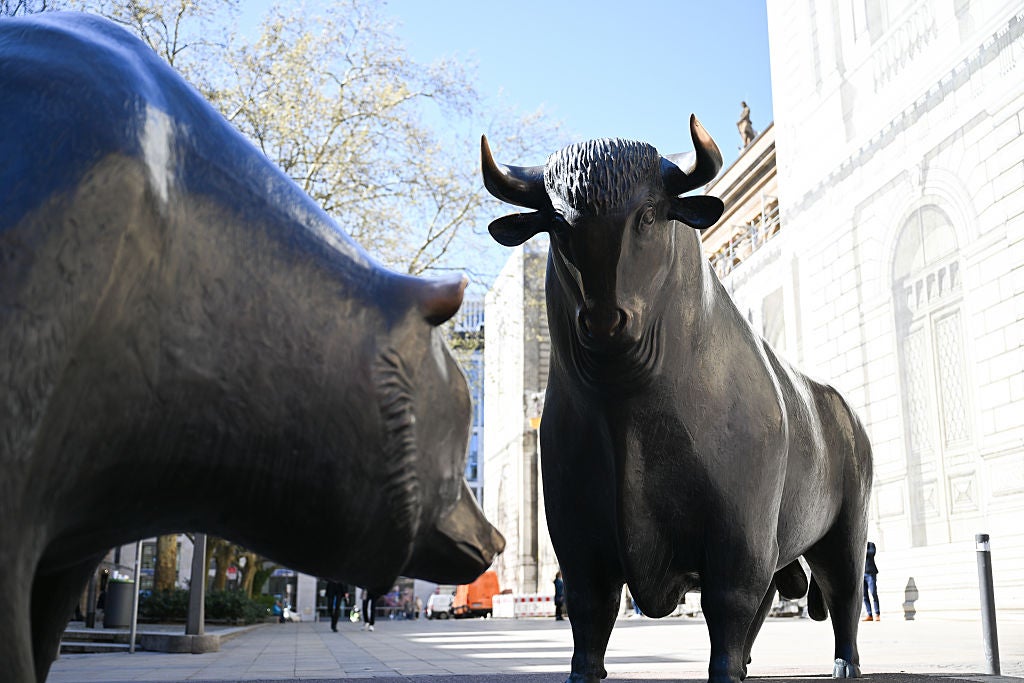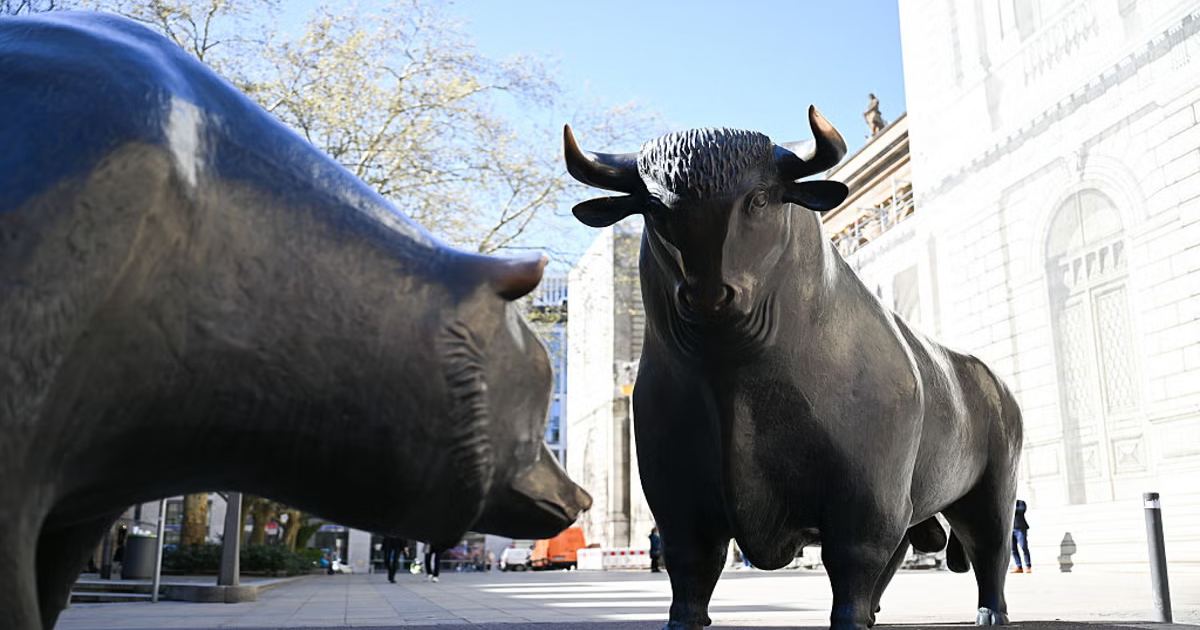
Stock markets have continued to fall across the globe in the wake of Donald Trump’s tariffs announcements last week – and now retaliation measures have started to emerge, beginning with China and with the EU response still ahead.
The combination of higher costs, fewer orders for businesses and punitive hits on US exporters all means worldwide growth could well slow significantly, with some economists now foreseeing a chance of global recession.
Ongoing uncertainty around the entire situation means there’s no guarantee of an answer, and yet the question remains: how much worse could it get in the stock markets?
Context in the UK and abroad
The FTSE 100 is down more than three per cent again in Monday trading – meaning it has more than erased earlier 2025 gains and is back to price levels last seen a year ago. That’s clearly a significant drop-off, but it is far from catastrophic in overall stock market terms: the FTSE 100 was at a record level, an all-time high, on 3 March.
So in the wider context of stock market history, the index is hardly in dismal territory. Similarly, in Germany the DAX is down 13 per cent in a month, yet it’s still only back to December 2024 levels now – while the S&P 500 is around April 2024 levels.
Still, recovery can take time so investors and companies don’t want to see sustained drops without certainty of how to mitigate those.
Further afield it’s a different matter.
Hong Kong’s Hang Seng dropping more than 13 per cent on Monday and Japan’s Nikkei 225 falling more than seven per cent are extremely notable; following enormous growth from 2021 to 2024, the Nikkei is now down more than 20 per cent over the past year – and for the Hang Seng it was one of the worst days in its existence.
“It’s rare to see double-digit falls in a single day for a major stock index, yet today will go down in history,” said Russ Mould, investment director at AJ Bell.
“In essence, Asia is lumping two horrible days on the market into one. That is the fourth biggest one-day decline ever in the Hang Seng.
“We’re seeing the biggest falls in Asia because it arguably has the most to lose from Trump’s tariffs. Asian countries have thrived from selling goods to the west, with places like the US having been hungry to access cheap labour.”
“Don’t catch a falling knife”
There are many well-known sayings in the investing world, several of which are as a result of repeat outcomes experienced across decades.
One when thinking about where the revival starts – or where the bottom of the fall lies – is “don’t try to catch a falling knife.” For the uninitiated, that suggests that if prices are nose-diving, you don’t necessarily want to try and jump in on those stocks, as you may get stung by them continuing to fall rather than rebounding.
There’s every chance that continuing to fall is the way things go for now.
Historical crashes have different recovery periods and ways that can start, as Dan Coatsworth of AJ Bell told The Independent.
“The sweeping tariffs have caused considerable pain to investors, so far wiping $8.27tn (£6.44tn) off the value of the global stock market since the Liberation Day speech. No-one knows with certainty if there is more pain to come.
“Last week saw big declines, yet areas such as defensive stocks, US Treasuries, gold and bitcoin held up until Friday afternoon. Selling across financial assets was widespread earlier today – which implies that investor fears are getting worse.
“Some would read this as the market reaching the contagion stage, where investors are liquidating everything they can. It wouldn’t be a surprise to see this phase followed by a wave of contrarian investors buying on the dip, snapping up assets while they are going cheap.
“Others might read the situation in a different way, suggesting the sell-off in defensives and beyond implies more bad news to come. We can look back at previous market shock events including Covid, the global financial crisis and inflation stress in the 1970s and see that recovery periods were variable: some short, some long and painful.”
In terms of retail investors who may be experiencing the shock of falling markets for the first time, context and calmness is key. Another well-worn phrase is “time in the market, not timing the market.”
Paper losses, as they are termed, as exactly that: you only make a loss on investments which are down when you actually sell them. Long-term holding tends to be rewarding – though it’s important to note there’s not always the same path to recovery charted by individual companies as for an overall index.

Bull markets see equities prices rise; bear markets see falls in valuations (Getty Images)
Jacob Falkencrone, head of investment strategy at Saxo, says that same history can provide some navigation.
“After the 2008 financial crisis and the Covid crash, stock prices rebounded strongly, rewarding those who stayed invested and calm. Disciplined investors who stayed in through volatility typically saw significant returns during recovery periods. So historically speaking, staying patient typically yields far greater rewards than attempting to time the market,” he said.
“Every major downturn has eventually been followed by significant recoveries. Most bear markets have historically recovered fully within two years, often even sooner. It’s uncomfortable now, but history strongly favours patient investors who remain disciplined.”
Mr Coatsworth added: “Staying invested is generally considered to be the best way forward. No-one knows when markets will jump back into action and move higher, but the recovery can take people by surprise and happen quickly. Therefore, someone sitting on the sidelines might find they miss out the recovery unless they were already in place to hitch a ride back up.”
Calls to pause or change tack grow louder
With tariffs originating under the US administration, it seems probable that any relenting is going to have to stem from pressure on that side of the Atlantic.
Business leaders from the world’s top companies haven’t yet come out in force to criticise the tariffs, but financial behemoths and those invested in the stock markets haven’t been shy about sharing their views.
JPMorgan Chase CEO Jamie Dimon wrote that the need to fix uncertainty effects on the markets was most pressing, as the impact they could have was not a straight-line one – nor an easy one to overcome the longer it continued.
Billionaire investor Bill Ackman, a supporter of Trump during his campaign, took to X to explain why the US should decide upon a 90-day pause on their tariff plan, suggesting further economic meltdown would come otherwise. The tariffs are a “mistake”, he said another post.
